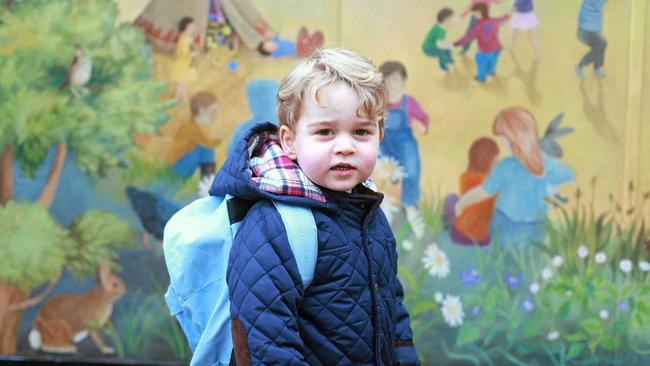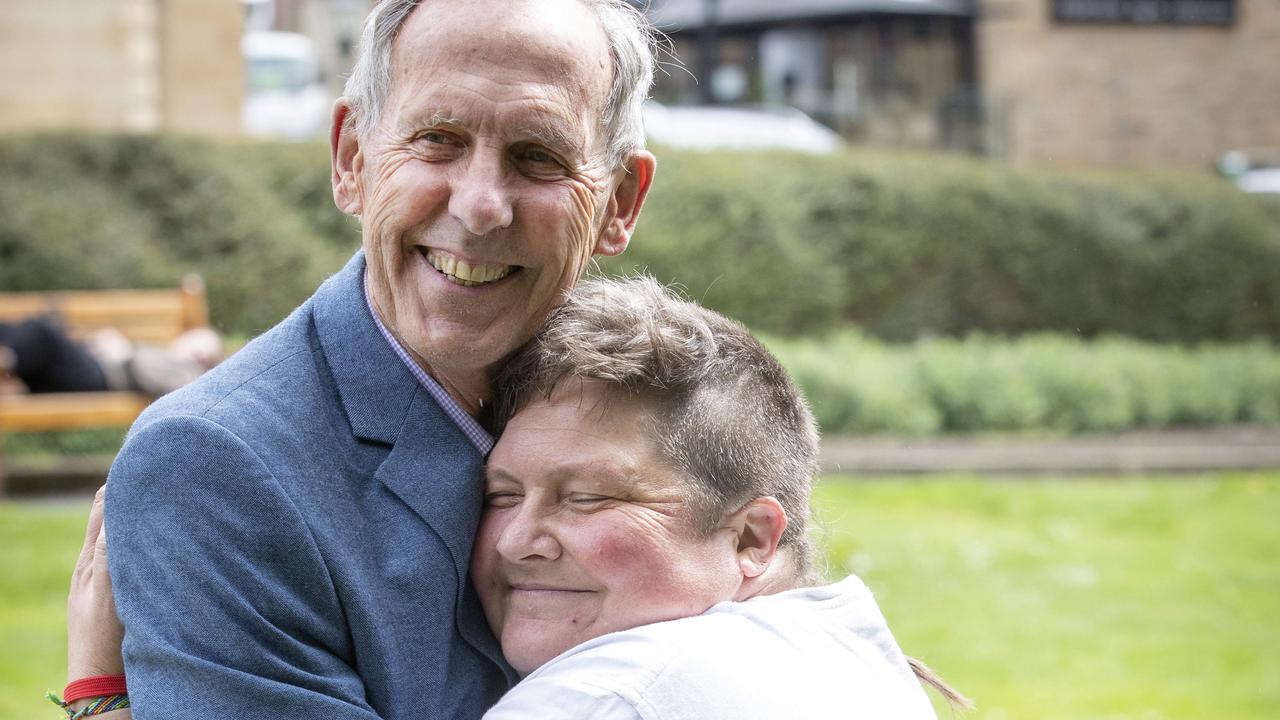Opinion: An educational approach fit for a future king
The Daily Examiner's Lesley Apps, spurred by 'that' shot of Prince George at school discusses the failings of our education system.

Opinion
Don't miss out on the headlines from Opinion. Followed categories will be added to My News.
THERE was an interesting reaction to a story by a couple of seasoned journos hosting the ABC breakfast program last week.
The segment itself was one of those royal-watcher, New Idea cutesy milestone moments about Prince George starting nursery school, the English version of our day care it was offered.
The word 'babysitting' was mentioned while discussing ours as talk about the nursery school the future king of England was attending the Montessori system.
But instead of acknowledging what that actually meant, the journos mocked it implying it probably entailed the finger paint stayed on their fingers rather than their clothes (because that's all children that age are capable of extending themselves to), and that kids should be allowed to be kids.
I don't quite know what that last statement means, but it insinuated that sending an infant to a place like that was somehow cruelly depriving them of their childhood because showing an interest in and encouraging their intellectual and social growth at that age was a waste of time.
That seems to be the Australian consensus when it comes to early childhood education, the poorly-paid system we offer here little more than a child minding service, until they get to 'big school', where the extent of stimulation and activities revolves around what grown ups believe toddlers are capable of, like whinging and making a mess.
Education it seems only gets serious during the last few years of a young student's life and thinking about their learning environment at age 2 or 3 is overkill.
So what is this Montessori style of schooling?
It was developed in the early 20th century by the remarkable Dr Maria Montessori, the first woman to graduate with a medical degree from an Italian university.
She became a director of a school for intellectually disabled children in the slums of Rome in 1907 where her approach to teaching saw the students surmount their individual challenges to successfully compete in public examinations. Not bad, Maria, not bad.
After witnessing their astonishing, almost effortless ability to learn, Dr Montessori then wondered what was possible using similar methods in mainstream schooling and so the cornerstone of her life-long dedication to educational reform, where children virtually teach themselves, was born.
Rather than the institutionalised education system we seem to relish here, her way of teaching revolved around an environment that fosters children's love of learning while encouraging independence through certain activities and materials which they use under the own steam.
This effectively builds self-confidence and instils discipline, a sense of self-worth and positive social behaviour, according to its literature, forming the basis for lifelong learning. Wow, what a waste of time for a three-year-old.
Dr Montessori took into account the whole child and his/her place within the community from the get-go, treating them like smaller members of society rather than clueless dribblers, so in other words no babysitting at Prince George's new school.
Most of us know very young kids are sponges. Babies can easily be bilingual if you allow them; in some European countries it is the norm for their first words to be in their homeland tongue and English.
Other countries invest in their early childhood education like its a no brainer. Why wouldn't you get your future generation off to the best possible start as normal (affordable) practice?
At a recent Queensland university graduation ceremony, there was a woman who achieved such outstanding results obtaining her early childhood education degree she won a university medal and was promptly snapped up by Sweden to work in their system. Underestimating what a two-year-old is capable of doesn't seem like the way forward, nor is mocking an approach that encourages better human beings.
Originally published as Opinion: An educational approach fit for a future king


